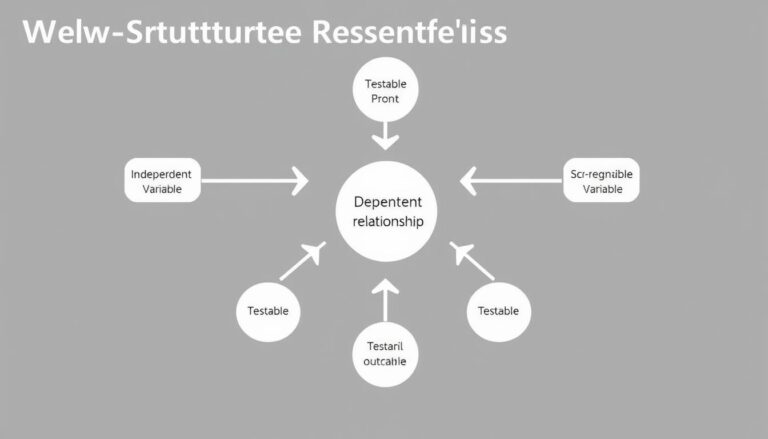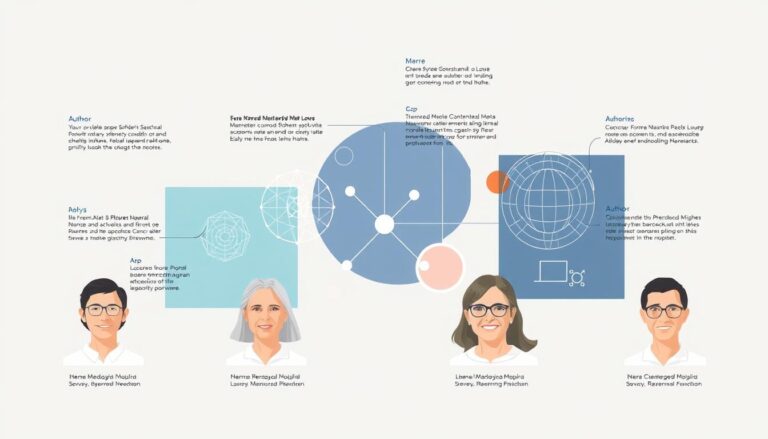Effective utilisation of corpora and language tools is crucial in today’s linguistic landscape. To harness their full potential, proper training is essential. This involves understanding how to navigate and apply these resources in various contexts.
Workshops and tutorials play a vital role in equipping individuals with the necessary skills to effectively use corpora and language tools. These educational resources help bridge the gap between theoretical knowledge and practical application.
Key Takeaways
- Understanding corpora and language tools is vital for linguistic applications.
- Proper training enhances the effective use of these resources.
- Workshops and tutorials are essential for practical skills development.
- Effective utilisation leads to better linguistic outcomes.
- Continuous learning is necessary to stay updated with new tools and methodologies.
Understanding Corpora and Language Tools in Linguistics
Linguistic corpora and language tools are fundamental components in the field of linguistics. They provide researchers with the data and instruments necessary to analyze language structures, usage, and variations.
What Are Linguistic Corpora?
Linguistic corpora are large, structured databases of texts, spoken or written, that are used to analyze language patterns, frequencies, and contexts. These corpora can be general, covering a wide range of topics and genres, or specialized, focusing on specific areas such as legal, medical, or literary language. The use of corpora has revolutionized linguistic research by providing empirical evidence for linguistic theories and descriptions.
Common Language Analysis Tools in Australian Research
In Australian linguistic research, various tools are employed to analyze corpora. These include software for corpus annotation, frequency analysis, and concordancing. Tools like AntConc and Sketch Engine are popular among researchers for their ability to handle large datasets and provide detailed linguistic insights. Australian researchers also utilize corpora to study language variation, language teaching, and discourse analysis.
By leveraging these corpora and tools, Australian linguists contribute to a deeper understanding of language and its role in society.
The Importance of Specialised Training for Corpus Analysis
As linguistic research becomes increasingly reliant on corpus data, the need for specialised training grows. Corpus analysis is a complex task that requires a deep understanding of both linguistic principles and the tools used to analyse large datasets.
Difficulties of Unstructured Learning
Self-taught approaches to corpus analysis can be fraught with difficulties, including a lack of comprehensive understanding of available tools and methodologies. Without structured guidance, learners may overlook critical aspects of corpus linguistics, leading to inefficiencies in their research or analysis.
Advantages of Formal Education
Structured learning environments, such as those provided by academic tool training programs, offer a systematic approach to learning corpus analysis. These programs cover foundational skills, advanced techniques, and the practical application of corpus tools, ensuring that participants gain a thorough understanding of the subject.

Return on Investment
Investing in specialised training for corpus analysis can yield significant returns, both in terms of academic productivity and career advancement. By enhancing their skills, researchers and analysts can improve the quality and impact of their work.
| Training Aspect | Self-Taught Approach | Structured Training |
|---|---|---|
| Comprehensive Understanding | Limited | High |
| Efficiency in Research | Variable | High |
| Career Advancement | Limited | Significant |
By choosing structured training programs, individuals can ensure they are well-equipped to handle the demands of corpus analysis, thereby enhancing their research capabilities and career prospects.
Types of Corpus Training Programs Available in Australia
Australia offers a diverse range of corpus training programs tailored to different needs and professional levels. These programs are designed to equip individuals with the skills necessary to effectively utilize corpora and language tools in various contexts.
University-Based Workshops
Many Australian universities host workshops and training sessions focused on corpus linguistics. These workshops are often led by experts in the field and provide hands-on experience with various corpus analysis tools. For instance, the University of Queensland and the University of Melbourne frequently organize such events.
Professional Development Courses
Professional development courses are another avenue for corpus training. These courses are typically designed for individuals looking to enhance their skills in a specific area, such as corpus annotation or linguistic analysis. They are often available through professional organizations or dedicated language learning institutions.
Industry-Specific Training Opportunities
Industry-specific training opportunities are also available, catering to the needs of professionals working in fields such as translation, lexicography, and language teaching. These programs focus on the practical application of corpus linguistics in real-world scenarios, ensuring that participants can immediately apply their new skills.
As noted by a prominent linguist, “Corpus linguistics has revolutionized the way we approach language teaching and research.” Effective corpus training programs can significantly enhance one’s career prospects in this field.
“The use of corpora in language teaching has become increasingly important, as it allows for more authentic and relevant learning materials.”
By leveraging these diverse training options, individuals in Australia can gain a competitive edge in their respective fields, whether academic, professional, or industrial.
Essential Corpus Training for Beginners
Embarking on a journey in corpus linguistics requires a solid foundation, which can be achieved through essential corpus training designed for beginners. This foundational training is crucial for understanding the complexities of language analysis and for applying corpus linguistics in various contexts.
First Steps in Corpus Linguistics
The first step in corpus linguistics involves familiarizing oneself with the concept of corpora and the tools used to analyze them. Beginners should start by understanding what linguistic corpora are and how they are used in research. Corpora are large databases of texts that can be analyzed using specialized software to uncover patterns and trends in language use.
Foundational Skills Development
Developing foundational skills in corpus linguistics involves learning how to use corpus analysis tools effectively. This includes understanding how to query corpora, interpret results, and apply findings to research questions. Training programs for beginners should cover these essential skills to ensure a strong start in the field.

Common Tools for Newcomers
Newcomers to corpus linguistics can benefit from learning about commonly used tools in the field. Some of the most popular tools include AntConc, WordSmith Tools, and Sketch Engine. These tools offer a range of functionalities, from simple frequency analysis to more complex analyses like collocation and keyword extraction.
| Tool Name | Primary Function | Level of Complexity |
|---|---|---|
| AntConc | Corpus analysis and concordancing | Beginner-friendly |
| WordSmith Tools | Comprehensive corpus analysis | Moderate complexity |
| Sketch Engine | Advanced corpus querying and analysis | Higher complexity |
By starting with these foundational elements and tools, beginners can establish a strong base in corpus linguistics and be well-prepared for more advanced studies and applications.
Advanced Training Workshops for Experienced Linguists
Experienced linguists can elevate their research with specialized training in corpus techniques and tools. Advanced training workshops are designed to cater to the nuanced needs of seasoned professionals in the field of linguistics.
Specialised Corpus Techniques
These workshops focus on advanced corpus techniques that enable linguists to conduct more sophisticated analyses. Participants learn about:
- Advanced data extraction methods
- Complex query syntax
- Integration of multiple data sources
Tool-Specific Masterclasses
Masterclasses are available for a range of popular corpus analysis tools, providing in-depth training on their advanced features. This includes:
- Corpus annotation tools: Learning to annotate corpora with precision for more accurate analysis.
- Statistical analysis software: Understanding how to apply statistical methods to corpus data.
Research Methodology Training
Research methodology training is a crucial component of advanced workshops, equipping linguists with the skills to design and implement robust research projects. Key areas covered include:
- Research design and hypothesis formulation
- Data collection and analysis techniques
- Interpretation of results and drawing meaningful conclusions
By participating in these advanced training workshops, experienced linguists can significantly enhance their academic tool training, staying at the forefront of linguistic research and analysis.
Online vs In-Person Training Options in Australia
Corpus training in Australia has become more accessible, thanks to the availability of both virtual and face-to-face training sessions. This flexibility allows linguists to choose the learning environment that best suits their needs and preferences.
Benefits of Virtual Learning Environments
Virtual learning environments offer several advantages, including flexibility in scheduling and the ability to access materials from anywhere. This is particularly beneficial for professionals who are balancing work and study commitments.
- Flexibility: Learn at your own pace and on your own schedule.
- Accessibility: Access course materials from any location with an internet connection.
- Cost-Effective: Often more affordable than traditional in-person training.
Advantages of Face-to-Face Workshops
In-person training sessions provide a different set of benefits, including direct interaction with instructors and the opportunity to network with peers.
- Immediate Feedback: Get instant feedback from instructors during hands-on activities.
- Networking Opportunities: Connect with other professionals in the field.
- Structured Learning: Follow a structured learning path with less distraction.
Hybrid Training Models Growing in Popularity
Hybrid models, which combine elements of both online and in-person training, are becoming increasingly popular. They offer a balanced approach, providing the flexibility of online learning alongside the benefits of face-to-face interaction.
Case Study: Successful Hybrid Training at Australian Universities
A notable example of successful hybrid training is seen in some Australian universities, where corpus linguistics courses are offered with a mix of online lectures and in-person workshops. This approach has been well-received by students, who appreciate the flexibility and the opportunity for direct interaction.
The choice between online, in-person, and hybrid training models depends on individual learning preferences and career goals. By understanding the benefits of each, linguists in Australia can make informed decisions about their professional development.
Leading Australian Institutions Offering Corpus Training
Several prestigious Australian universities and research centers provide comprehensive corpus training programs. These institutions offer a range of courses and workshops tailored to different levels of expertise, from beginners to advanced researchers.
University Programs Across the Country
Universities such as the University of Melbourne and the Australian National University offer linguistics tutorials as part of their curriculum. These programs are designed to equip students with practical skills in corpus analysis and linguistic tool usage.
Specialised Research Centres
Research centers like the Australian Research Council Centre of Excellence for the History of Emotions provide specialized training in corpus linguistics. They offer academic tool training that is invaluable for researchers.
Professional Organisations and Industry Partners
Professional organisations and industry partners, such as the Australian Research Data Commons (ARDC), collaborate with academic institutions to provide cutting-edge corpus training. These collaborations ensure that training programs are relevant and up-to-date with industry needs.
Practical Applications of Corpus Training in the Australian Context
Australian institutions and industries are leveraging corpus training to enhance their linguistic research and practices. This training has far-reaching implications across various sectors.
Academic Research Applications
In academia, corpus training enables researchers to analyze large datasets efficiently, contributing to groundbreaking studies in linguistics. Corpus analysis tools facilitate the examination of language patterns, syntax, and semantics, providing valuable insights into linguistic structures.
Industry and Commercial Uses
In the commercial sector, corpus training is used to develop more sophisticated language processing technologies. Companies utilize corpus linguistics to improve customer service chatbots, enhance machine translation services, and analyze consumer feedback.
Educational Implementations
Educational institutions incorporate corpus training into their curricula to equip students with practical skills in linguistic analysis. This training prepares the next generation of linguists and language professionals for the demands of the modern workplace.
Government and Policy Applications
Government agencies apply corpus training in policy development and public service delivery. By analyzing large corpora, policymakers can better understand public discourse and develop more effective communication strategies.
The diverse applications of corpus training underscore its significance in the Australian context, driving innovation and improvement across multiple fields.
Success Stories: Implementing Skills from Corpus Training
Through specialized linguistics tutorials, individuals and organizations have achieved significant breakthroughs. The skills gained from corpus training have far-reaching applications across various sectors.
Academic Career Advancements
Many researchers have reported significant career advancements thanks to the skills acquired through corpus training. For instance, a linguist who completed a corpus analysis workshop was able to publish several papers in top-tier journals, enhancing their academic reputation.
Industry Transformations
Corpora and language tools have also transformed industries by improving language processing capabilities. Companies have adopted corpus-based approaches to enhance their natural language processing systems, leading to more accurate and efficient operations.
Research Breakthroughs
The application of corpus linguistics skills has led to several research breakthroughs. For example, a research team used corpus analysis to study language patterns in historical documents, uncovering new insights into cultural evolution.
| Sector | Application of Corpus Training | Outcome |
|---|---|---|
| Academia | Enhanced research capabilities through corpus analysis | Publication in top-tier journals |
| Industry | Improved natural language processing systems | Increased operational efficiency |
| Research | Analysis of historical documents using corpus techniques | New insights into cultural evolution |
These success stories demonstrate the value of investing in corpus training and linguistics tutorials. By acquiring these skills, individuals and organizations can achieve significant advancements in their respective fields.
How to Choose the Right Training for Your Specific Needs
In the realm of corpus linguistics, the right academic tool training can make a significant difference. With various programs available, selecting the one that best suits your requirements is crucial.
Assessing Your Current Skill Level
Before enrolling in any training program, it’s essential to assess your current skill level. This involves identifying your strengths and weaknesses in using corpus tools and understanding your learning objectives.
Matching Training to Career Goals
Your career goals should dictate the type of training you pursue. Whether you’re aiming for advancements in academia or industry, the training should align with your professional aspirations.
Evaluating Training Providers in Australia
Australia offers a range of training providers, from universities to professional organizations. When evaluating these providers, consider their reputation, the expertise of their instructors, and the relevance of their curriculum.
Questions to Ask Before Enrolling
- What is the level of the course: beginner, intermediate, or advanced?
- Are there any prerequisites for the course?
- What is the duration of the program, and what is the time commitment required?
- Are there any opportunities for practical application or hands-on experience?
- What kind of support is offered to students during and after the course?
By carefully considering these factors and asking the right questions, you can make an informed decision about your academic tool training, ensuring it meets your specific needs and contributes to your professional growth.
Conclusion: Advancing Your Career Through Corpus Training
Corpus training has emerged as a vital component in the field of linguistics, offering numerous benefits for career advancement. By participating in corpus workshops and training programs, individuals can significantly enhance their skills in corpus analysis and language tool utilization.
Australia offers a diverse range of corpus training opportunities, from university-based workshops to professional development courses and industry-specific training. Whether you’re a beginner or an experienced linguist, there’s a training program tailored to your needs.
Investing in corpus training can lead to improved research capabilities, enhanced career prospects, and increased competitiveness in the job market. As the demand for experts in corpus linguistics continues to grow, pursuing corpus training is a strategic move for those looking to advance their careers.
By leveraging the knowledge and skills gained from corpus workshops, individuals can drive innovation and excellence in their respective fields. Take the first step towards advancing your career by exploring the various corpus training options available in Australia.





